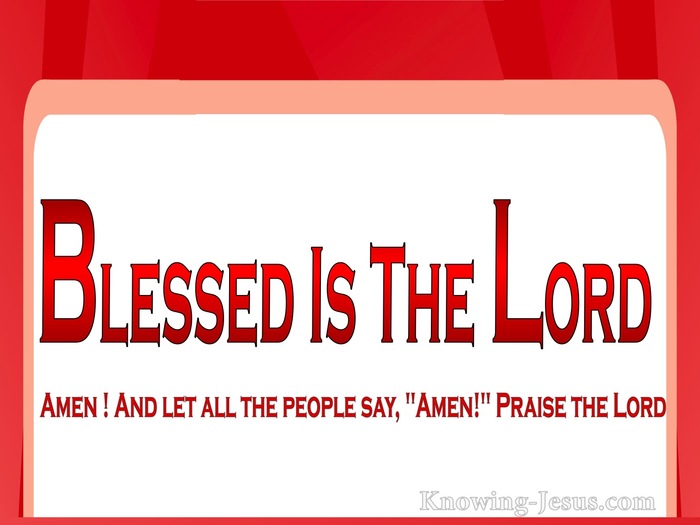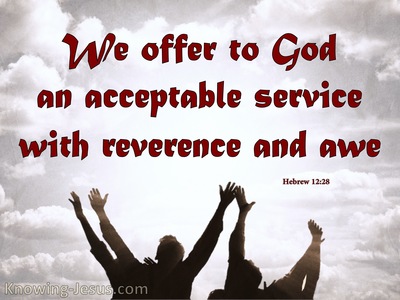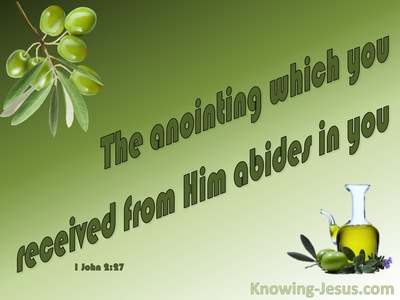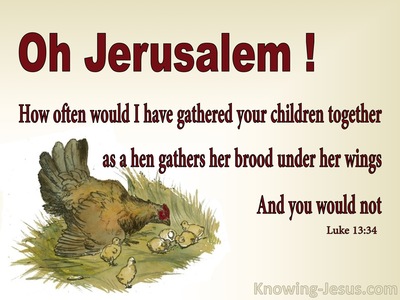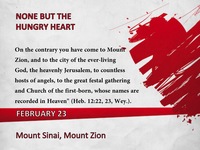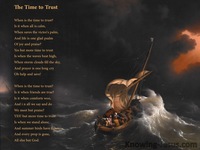◄ What Does Psalm 106:48 Mean? ►
Blessed be the LORD, the God of Israel, From everlasting even to everlasting. And let all the people say, "Amen." Praise the LORD!
Psalm 106:48(NASB)
Verse of the Day
The book of Psalms is divided into five sections and have been categorised in many different ways by numerous scholars. Some suggest they are classified by subject matter, linked through interpretation, or grouped because of their literary style. Some see a link with the five books of Moses, while others classify them as historical, messianic, prophetic, penitential, or calls for vengeance on Israel's enemies.
Whatever the reason for the division, every 'book' tells the ongoing story of redemption and each section ends with a beautiful doxology of thanksgiving and praise to God. Beginning with Psalm 90, the final psalm in this section is Psalm 106, and the last verse is one of thanksgiving and praise to the great God of the universe: "Blessed be the LORD, the God of Israel, from everlasting to everlasting. Let all the people say, 'Amen.' Praise the LORD!"
Starting with a lament on the brevity of life inspires the need for the sinner to safeguard their soul by turning from sin and seeking God's divine presence in every circumstance of life. Comfort escorts those crushed by suffering and sorrow, as the promises of God's messianic kingdom begin to be proclaimed.
Nebuchadnezzar, Pharaoh, and Sennacherib, are reminders to Israel of their rebelliousness toward God, and serve as reminders to nurture humility of heart, as the graciousness of God is beautifully revealed through His promise of redemption, causing His people to offer praise and thanksgiving for the mighty miracles He has performed towards them.
The people in this section are reminded that in this world there will be times of great trouble and tribulation, for sin must be punished by a God of holiness. Nevertheless, the consoling thought is that God loves those he chastens and scourges every son whom He accepts.
For those of us who look back to the Cross, we clearly see the picture Jesus painted here, as the One and only sacrifice for the sin of the world. However, the Psalmist looks forward to the coming Messianic age when evil men will be cut down, wrongs will be righted, the meek will inherit the earth, and the earth will be filled with the glory of God as the waters cover the sea.
While this entire section begins with suffering and pain, it touches on many emotions as David remembers the covenant God made with Abraham and his descendents. He recollects the Nation's infancy and Joseph's rise to power and recalls the Plagues of Egypt which brought about the Passover, the Exodus, the wilderness journey, their entrance into the Promised Land, and the many periods of Israel's rebellion.
David, the Psalmist, is finally is moved to rapturous rejoicing as he brings this fourth section to a close with warnings against ingratitude, murmuring, self-will, idolatry, and gross disobedience, followed by the most glorious doxology of praise and thanksgiving: "Blessed be the LORD, the God of Israel from everlasting even to everlasting. And let all the people say, 'Amen.' Praise the LORD!"
My Prayer
Heavenly Father, thank You for the book of Psalms, which has become a source of comfort and hope as well as a reminder of Your never-failing mercy and grace. Thank You that although You scattered Your rebellious people, the day is coming when they will repent of their sin, call on the name of the Lord, and be saved as a nation. May I never forget what a faithful God You are to Israel and all Your people, and may I develop a heart of humility and gratefulness for all the goodness and grace that has been extended to me. I pray that my heart would remain tender toward You and be filled with prayers of thanksgiving and praise for Your holy name’s sake. Blessed be the Lord, the God of Israel, Who is from everlasting even to everlasting. AMEN! Praise the LORD!
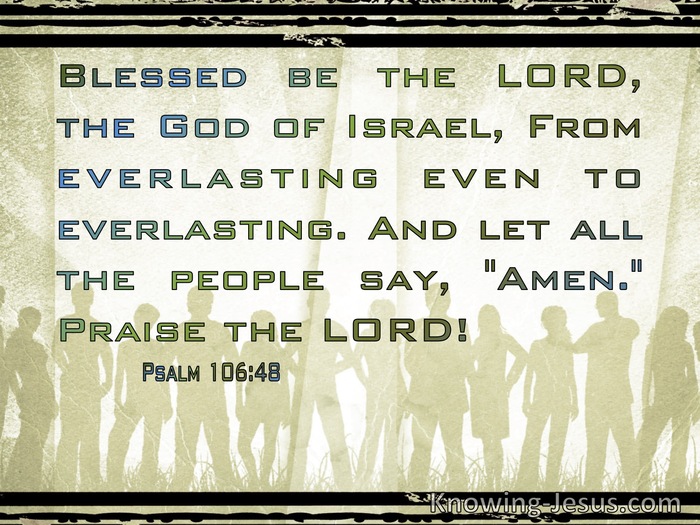
Choose a Verse from Psalm 106
Psalm 106:48 Further Study
- Psalm 106:48 in the Parallel Bible
- Psalm 106:48 in the Thematic Bible
- Psalm 106:48 Cross References
- Psalm 106:48 Treasury of Scripture Knowing
- Psalm 106:48 Prayers
- Psalm 106:48 Images
- Choose Chapter
-
Psalm1 2 3 4 5 6 7 8 9 10 11 12 13 14 15 16 17 18 19 20 21 22 23 24 25 26 27 28 29 30 31 32 33 34 35 36 37 38 39 40 41 42 43 44 45 46 47 48 49 50 51 52 53 54 55 56 57 58 59 60 61 62 63 64 65 66 67 68 69 70 71 72 73 74 75 76 77 78 79 80 81 82 83 84 85 86 87 88 89 90 91 92 93 94 95 96 97 98 99 100 101 102 103 104 105 106 107 108 109 110 111 112 113 114 115 116 117 118 119 120 121 122 123 124 125 126 127 128 129 130 131 132 133 134 135 136 137 138 139 140 141 142 143 144 145 146 147 148 149 150
-
Never miss a post
